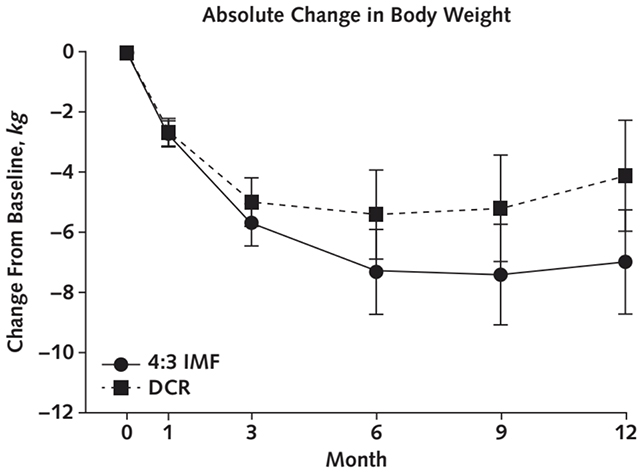
When it comes to weight loss dieting, the number of options can be overwhelming. A new study suggests a simple approach could make a bigger impact than constantly counting calories: the 4:3 intermittent fasting routine.
A 4:3 intermittent fasting schedule involves limiting calorie intake for three days each week and eating normally for the remaining four.
Researchers in the US found that this approach led to a 7.6 percent average weight loss over a year, compared to just 5 percent with a traditional daily caloric restriction diet.
That’s not a huge difference, but it suggests that for some people at least, varying diet restrictions might be more effective – and easier to stick to – than maintaining a daily calorie limit.

“It was surprising and exciting to me that it was better,” says endocrinologist Victoria Catenacci, from the University of Colorado.
The team put 165 participants with overweight or obesity, aged between 18 and 60, through a 4:3 intermittent fasting (IMF) or daily caloric restriction (DRC) diet over the course of 12 months, while also recommending increases in activity.
The IMF group was told to apply an 80 percent calorie intake restriction on three days out of seven, with no restrictions on the other four days (though eating healthily was still encouraged). To match the limits overall, the DRC group was told to reduce their daily calorie intake by 34 percent each day.
Weight loss varied in both groups, but the IMF group averaged a 7.7 kg (17 pounds) drop, compared to 4.8 kg (11 pounds) for the DRC group. Small improvements in health markers like blood pressure were also seen across both groups.
“The more important message to me is that this is a dietary strategy that is an evidence-based alternative, especially for people who have tried DCR and found it difficult,” says Catenacci.
The study comes with some caveats. Participants self-reported their food and energy intake, and while the IMF group only recorded their fasting days, it’s possible they were also limiting calorie intake on non-fasting days.

